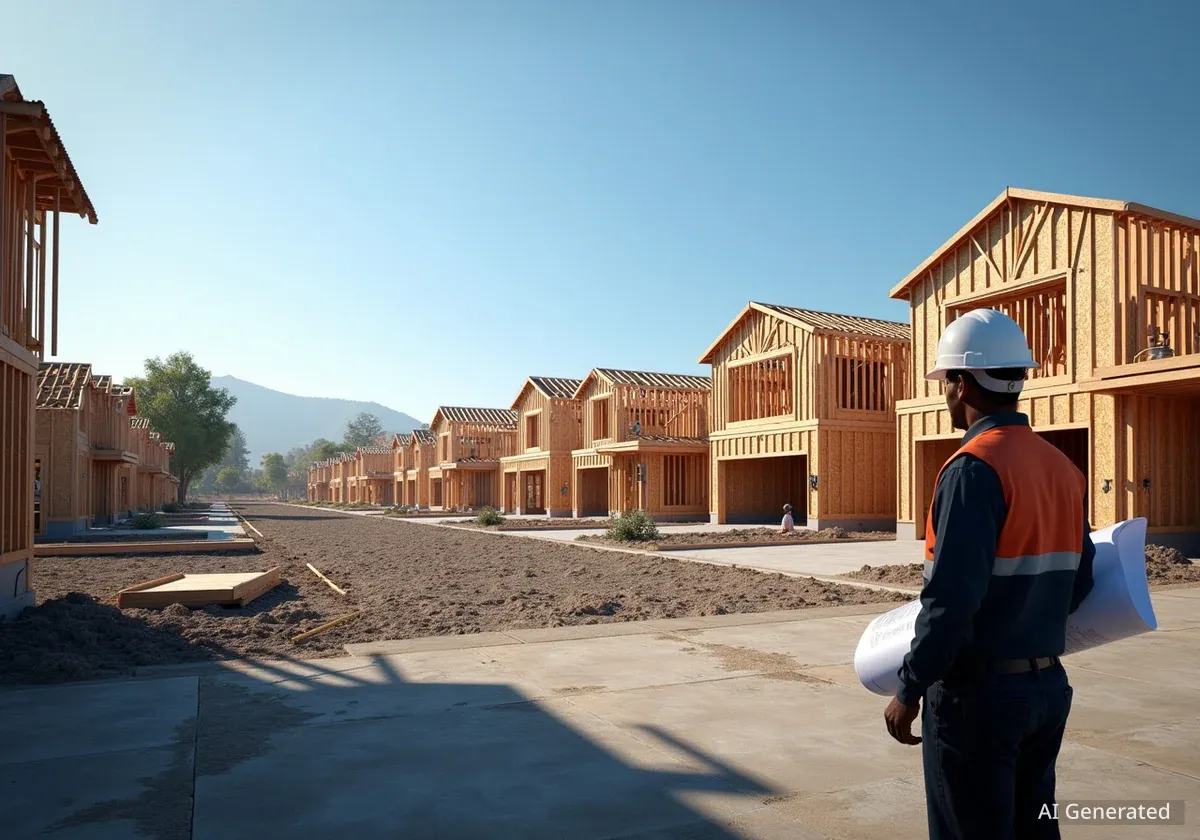Edwin Castro, the individual who claimed the largest Powerball jackpot in United States history, has embarked on a significant real estate initiative in his hometown of Altadena, California. He is investing approximately $10 million to acquire 15 properties that were destroyed by recent wildfires, with the intention of rebuilding homes for families.
Key Takeaways
- Edwin Castro, record Powerball winner, is investing $10 million in Altadena real estate.
- He has purchased 15 fire-damaged properties for rebuilding.
- The project aims to construct single-family homes for long-term residents.
- Castro emphasizes community and family, not maximum profit.
Castro's Vision for Altadena Recovery
After winning the unprecedented $2 billion Powerball jackpot, Edwin Castro initially maintained a low public profile. His activities, however, have recently drawn attention in Altadena, a community significantly impacted by wildfires in January. Castro, 33, who once rented a room in the area, has become one of the largest private landowners there.
His focus is on acquiring lots where structures once stood before the fires. The goal is to facilitate rebuilding efforts rather than simply holding land for investment. He expressed a personal connection to the community where he grew up.
"This is for a family that wants to move in," Castro told the Wall Street Journal during a tour of one of the devastated neighborhoods. "Those are the people that need to be looked out for right now."
Fact Check
- $2 Billion: The record Powerball jackpot won by Edwin Castro.
- $10 Million: Estimated amount Castro has spent on fire-damaged properties.
- 15 Properties: Number of lots purchased by Castro in Altadena.
- 9,000 Structures: Approximate number of structures lost in the January Altadena fires.
Rebuilding Strategy and Community Impact
Castro plans to construct primarily single-family homes. He also intends to build a personal residence, which he described as having a "Willy Wonka-esque" design, featuring secret underground rooms. This personal investment underscores his commitment to the area.
His approach differs from some other investors who are also purchasing lots from residents unable or unwilling to undertake the multi-year rebuilding process. While other developers consider higher-density, multi-family units, Castro insists on maintaining the community's existing character.
The rebuilding effort has generated mixed reactions from local residents. Some express cautious optimism, while others harbor concerns. They fear that a new wave of investor interest, combined with potentially relaxed California zoning regulations, could erode Altadena's small-town feel and its historically diverse, middle-class composition.
Background on Altadena Fires
The January wildfires caused extensive damage in Altadena, California. Thousands of homes and other structures were destroyed, displacing many residents. The cleanup process has largely concluded, but new construction has been slow. Many homeowners continue to navigate complex insurance claims, permit approvals, and the high costs associated with rebuilding.
A Personal Mission, Not Just Profit
Castro has assembled a small team, including a design consultant, to manage his rebuilding projects. Architectural plans for the initial two homes, described as three-bedroom Craftsman-style houses with additional residential units, have been submitted for permits. His family office is staffed by friends from Crescenta Valley High School, indicating a local connection to his operations.
He clarifies that his ventures are not an attempt to create a vast real estate empire. Instead, he views it as a deeply personal project tied to his roots and family values.
"The profit margin doesn’t need to be egregious," Castro stated. "But I’m not building these homes just to give them away."
Castro intends to sell the new homes exclusively to buyers who plan to live in the community for the long term, rather than to other investors. This strategy aims to foster stability and community cohesion. He believes that by rebuilding thoughtfully and selling at the appropriate time, the entire neighborhood’s value will be enhanced.
Community Reception and Future Plans
Despite some skepticism, Castro's presence has been welcomed by certain residents. Joel Bryant, a contractor and long-time local, expressed confidence in Castro, stating, "I feel better about him than anybody else because he’s from the area."
Zaire Calvin, whose family lost two homes in the fire and whose sister died during the evacuation, sees potential in Castro's involvement. According to Calvin, "Billionaires should be the first ones in line to help. A collaboration with him would be great to make sure that actually happens."
Castro has indicated that he does not plan to acquire additional properties beyond the current 15. He views the project as a significant long-term commitment. "It’s too much work," he remarked. "Imagine a 10-year project. That’s a good chunk of your life."
The gas station where Castro purchased his winning Powerball ticket remains one of the few structures in the area that survived the devastating fires untouched, standing as a symbol of both destruction and the potential for renewal.





